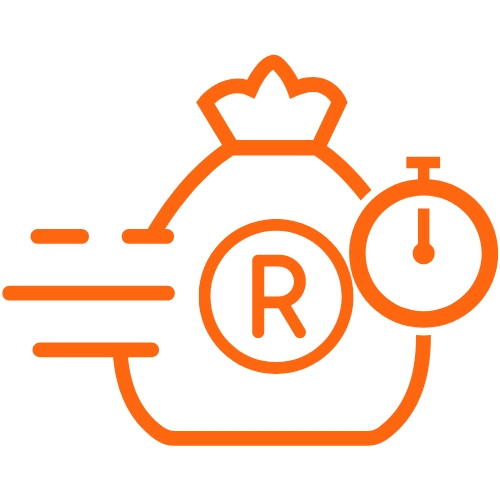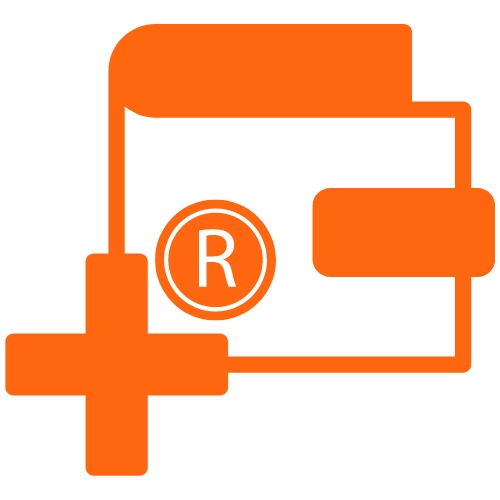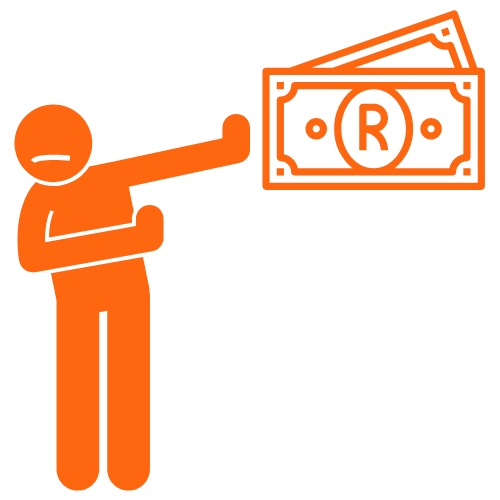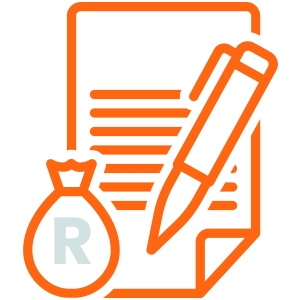
There are countless options available in South Africa when looking to consolidate your debt. With so many choices, it may be challenging to compare your options, let alone make a smart commitment toward your potential consolidated loan. We will cover the comparisons between the major credit providers in South Africa. Namely, FNB, Old Mutual, and Standard Bank, regarding their debt consolidation loans and payment plans, fees, and interest rates.
Key Takeaways
- Interest Rates and Fees: FNB offers interest rates from 10.25% per annum, Old Mutual from 13.50% per annum, and Standard Bank from 12.00% per annum. Only Standard Bank charges an early settlement fee (R50).
- Loan Amounts and Terms: FNB loans range from R2 000 to R300 000 (1-60 months), Old Mutual from R5 000 to R250 000 (12-60 months), and Standard Bank from R3 000 to R300 000 (12-72 months).
- Additional Features: FNB provides options like a repayment break in January and “Credit Life insurance.” Old Mutual offers “Credit Life” insurance for financial hardships. Standard Bank offers secured and unsecured loans, with secured loans potentially having lower interest rates.
What is Debt Consolidation and How Does it Work?
Debt consolidation involves merging multiple debts into a single new loan. This method helps decrease the number of credit obligations and can reduce your interest expenses.
Examples of debts that can be consolidated include:
- Credit cards
- Retail accounts
- Student loans
- Personal loans
By consolidating these debts, you may benefit from a lower interest rate. You can either apply for a secured consolidation loan or opt for an unsecured personal loan, potentially securing a more favorable rate.
The new loan pays off your existing debts, and you make payments on this new loan instead. Having only one monthly payment simplifies your finances, often reducing your total monthly expenses. This makes the loan more manageable, lowers the overall cost, and frees up funds for other expenses, savings, or investments.
Benefits of Consolidating Debt
- Simplified payments: Consolidating debt means you only have to pay off one loan amount, simplifying your monthly finances.
- Increased cash flow and affordability: Lower monthly repayments free up more money for other expenses or savings.
- Potential for lower interest rates: Consolidation often results in a reduced interest rate, saving you money in the long run.
Before Applying for Consolidation
- Understand the reasons behind your debt: Identify the root causes to prevent repeating the same mistakes.
- Assess your spending habits: Ensure you’re not inclined to accumulate more debt after consolidation.
- Familiarize yourself with the new interest rate and fees: Understand the potential changes and any additional costs associated.
- Develop a repayment strategy: Outline how you plan to repay the loan and ensure you can sustain the repayments.

Interest Rates and Fees Comparison
When comparing debt consolidation services from FNB, Old Mutual, and Standard Bank, it’s essential to look at the interest rates, fees, and overall loan conditions they offer. This table provides a detailed comparison:
Here’s a comparison of personal loan offerings from FNB, Old Mutual, and Standard Bank based on the provided features:
| Feature | FNB | Old Mutual | Standard Bank |
|---|---|---|---|
| Minimum Loan Amount | R2,000 | R5,000 | R3,000 |
| Maximum Loan Amount | R300,000 | R250,000 | R300,000 |
| Loan Term | 1 – 60 months | 12 – 60 months | 12 – 72 months |
| Interest Rates | From 10.25% per annum | From 13.50% per annum | From 12.00% per annum |
| Administration Fee | R69 | R69 | R69 |
| Early Settlement Fee | None | None | R50 |
| Late Payment Fee | R70 | R50 | R60 |
| Application Process | Online, in-branch, phone | Online, in-branch | Online, in-branch, phone |
| Required Documents | ID, proof of address, income proof | ID, proof of address, income proof | ID, proof of address, income proof |
| More Info | FNB Review | Old Mutual Review | Standard Bank Review |
How to Apply for a Loan with Arcadia Finance
Applying for a loan with Arcadia Finance is simple and convenient. Begin your application by visiting our website, where our dedicated and experienced team is ready to assist you with any questions you may have throughout the process. We will need some basic information from you, including your income and expenses, desired loan amount, and preferred repayment term. Once your application is submitted, our team will review the details and provide a decision promptly.
FNB Debt Consolidation Loans
Known as one of the longest-standing banks in South Africa. FNB is a division of FirstRand Bank Limited. Awarded as the most valued banking brand in South Africa in 2019 by Brand Finance. Well-known as one of the leading banks in the industry, FNB offers a host of benefits with its debt consolidation loans. FNB uses an unsecured debt consolidation loan as a “Credit Switch”.
Related Post: Debt Consolidation Loan Calculator
Eligibility
To qualify for an FNB debt consolidation loan, you must be at least 18 years old and a South African citizen or permanent resident. A stable source of income is essential, and it’s preferable that your salary is paid into an FNB account for easier verification. Additionally, FNB requires a good credit profile — applicants with poor credit histories or those under debt review are unlikely to be approved, as the bank conducts thorough credit and affordability assessments.
Loan Amounts and Rates
FNB offers personalised, fixed interest rates ranging from approximately 10.25% to 28.75%, depending on your creditworthiness. There is a once-off initiation fee of up to R1,207.50, which is typically added to the total loan amount. You’ll also pay a monthly service fee of around R69 to cover account maintenance. For added peace of mind, FNB provides optional credit insurance that can help cover repayments in the event of disability, death, or retrenchment.
Prepayment Fees
FNB does not charge prepayment fees upon paying additional funds toward your loan. FNB uses a customer-friendly bank app to monitor your funds, loans, and credit score.
FNB’s Credit Switch Program Fees
They offer a debt consolidation program with an initiation fee of R1207.50. Their monthly services fee each month is R69.
Repayment Terms
Repayments are made through fixed monthly debit orders, providing predictability and making budgeting easier. Loan terms are flexible, allowing you to choose a repayment period of up to six years. FNB also offers a unique “Take-a-Break” feature, letting you skip one payment in January each year to ease post-holiday financial pressure. Importantly, there are no penalties for early repayments or extra payments, so you can reduce your loan term and save on interest whenever your finances allow.
Pros and Cons of FNB Debt Consolidation
Pros
- Simplifies multiple debts into one manageable payment.
- Competitive rates, flexible terms, and no early settlement fees.
- Quick disbursement, and FNB manages the switch for you.
- Digital management via the FNB app.
- Payment holiday in January is a helpful perk.
Cons
- Strict approval criteria — poor credit applicants may struggle to qualify.
- High-risk borrowers might get high interest rates.
- Loan caps might not cover very large debts.
- Long terms = potentially more interest paid over time.
- No special options for those under debt review, and customer service can vary.
When deciding between major banks like FNB, Old Mutual, and Standard Bank, it’s helpful to know the broader landscape of banking in South Africa. Discover more in our comprehensive guide on Which Bank is the Best in South Africa?
Old Mutual Debt Consolidation Loans
Established in 1845, known as South Africa’s first mutual life insurance company. Old Mutual is a premium financial service provider. They offer a wide range of solutions for their clients. Old Mutual provides debt consolidation loans that are custom and tailored to their clients.
Eligibility
To qualify, you must be 18 years or older, permanently employed or self-employed with stable, provable income (usually at least R2,500–R5,000 per month). You’ll need a reasonable credit profile, as Old Mutual conducts credit and affordability checks — applicants with many defaults or judgments may struggle to get approved. Applicants must also be South African citizens or permanent residents. Supporting documents include your South African ID, proof of residence (within 3 months), latest payslip, and 3 months’ bank statements. Self-employed applicants may need to provide tax returns and business bank statements. You can also use Old Mutual’s pre-qualification tool to check potential eligibility without affecting your credit score.
Loan Amounts and Rates
Old Mutual offers fixed, personalised interest rates up 29.25% annually (APR), depending on your credit score, income, loan amount, and term. While slightly higher at entry-level compared to FNB, the rates remain predictable throughout your term. There’s a once-off initiation fee, capped at R1,207.50, and a monthly service fee of around R69, standard for the industry. Optional credit insurance is available, typically costing R4 – R7 per R1,000 borrowed per month. Old Mutual is transparent with costs, providing a full loan breakdown and amortisation schedule upfront so you know exactly what you’ll repay.
Repayment Terms
Loans are repaid in fixed monthly installments, giving you predictable budgeting. Repayment terms are flexible, from 3 months up to 72 months (6 years), depending on what suits your needs. Shorter terms mean higher payments but less interest overall, while longer terms lower your monthly cost but increase the total interest paid. Importantly, Old Mutual does not charge penalties for early settlement — paying extra or settling early reduces your interest burden. Unlike FNB, Old Mutual does not offer automatic payment holidays, but you can negotiate relief if you encounter genuine financial hardship. Top-ups are available if you need extra funds, and repayments are automated via debit order to avoid missed payments.
Features and Benefits
Old Mutual offers its users “Credit life” along with their long-term loans if you find yourself or your family falling on hard times in the event of job loss, disability, or death.
Pros and Cons of Old Mutual Debt Consolidation
Pros
- Reputable Brand: Old Mutual is one of South Africa’s most established financial services companies with a solid reputation for responsible lending.
- Fixed Interest Rates: Rates remain the same throughout the term, providing certainty and easy budgeting.
- Fast Application and Disbursement: Online application process is user-friendly, with funds often disbursed within 24 to 48 hours after approval.
- No Penalty for Early Repayment: You can save on interest by paying off your loan ahead of schedule without any extra fees.
- Transparent Fees: All costs are disclosed upfront with clear loan documentation.
- Top-Up Options: If you need more funds later, you can top up your loan instead of opening a separate credit facility.
- Free Loan Quote: Pre-qualification tools help you estimate your loan terms without affecting your credit score.
Cons
- Slightly Higher Starting Interest Rate: Compared to FNB, Old Mutual’s minimum advertised rate is higher (~15%), meaning it’s less competitive for borrowers with excellent credit.
- Loan Amount Limits: Maximum loan cap of R250 000 may not be enough for people with large debt loads.
- No Automatic Payment Holiday: Unlike some competitors, Old Mutual does not have an annual skip-payment feature.
- Stricter Approval for Bad Credit: If you have a poor credit history, approval can be challenging. Old Mutual prefers medium-to-low risk applicants.
- Limited Digital Self-Service: While the application is online, post-loan servicing isn’t as seamless as some rivals. For example, requesting settlements or top-ups often requires contacting customer support.

Standard Bank Debt Consolidation Loans
A proudly African financial services group has been offering its services for the past 160 years. Standard Bank provides a host of services to its customers at competitive rates.
What Standard Bank Offers:
- Debt Consolidation Loan: A facility to merge various debts (e.g., credit cards, personal loans) into one loan with a single monthly repayment.
- Personal Loan Option: An unsecured loan that can be used for debt consolidation purposes.
- Debt Care Centre: A dedicated support service offering personalized debt relief solutions, including term extensions and payment holidays.
Eligibility
To qualify, applicants must have a stable income and maintain a satisfactory credit record. Standard Bank conducts thorough credit assessments to ensure affordability. Required documents include a valid South African ID, proof of income (recent payslips), three months’ bank statements, and proof of residence. These documents help verify your financial standing and confirm eligibility.
Loan Amounts, Fees, and Rates
They offer loans that come in two forms. These are, namely, secured and unsecured loans. With secured loans, Standard Bank makes use of collateral such as a vehicle, home, or valued asset in the event you should fail to honour your repayments. The difference between such loans is that secured loans offer a lower interest rate than an unsecured loans.
Standard Bank offers a loan that may range from R3 000 to R300 000. With monthly repayment terms between 1 to 6 years. Standard Bank charges a service fee of R69 each month. Their once-off origination fee depends on the client; however, expect between roughly R419.75 to R1207.50. Note this fee will be inclusive of VAT.
Interest rates will, however, be determined by your credit rating, any additional debts, and wages earned. However, the interest rate will not exceed 24.75%. Regarding prepayment fees, Standard Bank charges an (APR) different annual percentage rate of 17.65%.
Pros and Cons of Standard Bank Debt Consolidation
Pros
- Simplified Finances: Combining multiple debts into one loan streamlines monthly repayments.
- Potential Interest Savings: A consolidated loan may offer a lower interest rate compared to the combined rates of existing debts.
- Flexible Repayment Options: Early settlement and term extensions provide adaptability to changing financial circumstances.
- Dedicated Support: The Debt Care Centre offers personalized assistance for managing and restructuring debt.
- Personal and Business Banking Integration: If you already bank with Standard Bank, managing your loan alongside personal or business accounts is convenient.
Cons
- Eligibility Criteria: Applicants must meet specific income and creditworthiness requirements, which may exclude some individuals.
- Fees: Initiation and monthly service fees add to the overall cost of the loan.
- Credit Impact: Applying for a new loan may temporarily affect the applicant’s credit score.
About Arcadia Finance
Arcadia Finance makes it simple to obtain your loan. Enjoy no application fees and choose from 19 dependable lenders, all meeting the standards set by South Africa’s National Credit Regulator.
Are Debt Consolidation Loans Bad for Your Credit?
Debt consolidation loans can significantly impact your credit score, either positively or negatively, depending on how they are managed. Here’s a breakdown of the potential effects:
Positive Effects on Credit Scores
- Timely Payments: Consistently making on-time payments on your consolidation loan can demonstrate your reliability and commitment to repaying debt. This positive payment history is a significant factor in boosting your credit score.
- Lower Credit Utilization: By consolidating high-interest credit card balances into a single loan, you can reduce your credit card balances. This lowers your credit utilization ratio (the amount of credit you’re using compared to your credit limit), which is positively viewed by credit scoring models.
- Simplified Debt Management: Managing a single loan payment can be easier than handling multiple credit card payments, reducing the risk of missed or late payments, which can harm your credit score.
Negative Effects on Credit Score
- Hard Credit Inquiry: Applying for a debt consolidation loan typically involves a hard inquiry into your credit report by the lender. This can cause a temporary dip in your credit score, usually by a few points.
- Reduced Credit Age: After consolidating your debts, shutting down old credit card accounts may reduce the average age of your credit records. A lower average age of accounts can negatively affect your credit score, as credit scoring models tend to favor a longer credit history.
- Potential for New Debt: If you do not address the underlying reasons for your debt accumulation, there is a risk of accumulating new debt even after consolidation. This can negate the benefits of consolidation and potentially lead to further credit score declines.

Best Practices for Debt Consolidation
To maximize the benefits of a debt consolidation loan and minimize potential downsides, consider these best practices:

Make Timely Payments: Ensure that you make all your payments on the consolidation loan on time. Setting up automatic payments can help avoid missed payments.

Keep Credit Accounts Open: After paying off credit card balances, consider keeping the accounts open (but unused) to maintain your credit history length and improve your credit utilization ratio.

Avoid New Debt: Focus on not incurring additional debt while paying off your consolidation loan. This discipline is crucial for improving your financial health and credit score.

Monitor Your Credit: Regularly check your credit reports and scores to track your progress and address any issues promptly.
Conclusion
There are several options available when looking to consolidate your debt from an accredited financial services provider. A widespread solution in determining the costs would be to use the credit provider’s banking app or online loan calculator. Additionally, their online debt consolidation calculators choose the potential costs, origination fees, and terms of your debt consolidation loan.
Frequently Asked Questions
No, not all banks offer debt consolidation loans. It depends on the bank’s specific products and services. You need to check with individual banks to see if they provide this option.
In South Africa, major banks like FNB, Old Mutual, and Standard Bank offer debt consolidation loans. It’s advisable to compare their terms, interest rates, and fees to find the best option for your needs.
Yes, you can ask your bank to consolidate your debt. It’s a good idea to contact your bank directly to discuss your options and see if they offer debt consolidation loans that fit your financial situation.
Typically, to qualify for debt consolidation, you need to have a stable income, a good credit score, and existing debts that you want to consolidate. Each bank may have specific requirements and criteria for eligibility.
To apply for a debt consolidation loan, you generally need to provide:
– Identification (such as an ID or passport)
– Proof of address
– Proof of income (such as payslips or bank statements)
Each bank may have additional documentation requirements.





